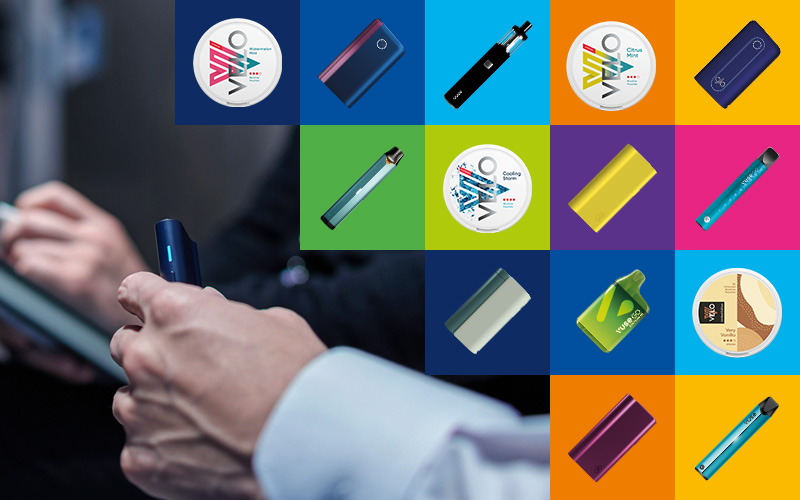WHO Illicit Trade Protocol
We have always publicly supported the development of a World Health Organization (WHO) Protocol to Eliminate Illicit Trade in Tobacco Products.
The protocol is an international treaty that expands on the obligations contained in Article 15 of the World Health Organization (WHO) Framework Convention on Tobacco Control (FCTC). It aims to provide a global framework of measures for countries to adopt in order to eliminate the illicit trade in tobacco products. The Protocol entered into force on 25 September 2018, and 64 Parties have ratified it as of 1 March 2022.
The Protocol’s scope is broad and includes a combination of binding obligations and policy recommendations that cover supply chain controls, international cooperation and enforcement. National governments have significant discretion regarding the interpretation and implementation of the Protocol’s provisions.
BAT supports the Protocol’s overall objectives. We believe the legal tobacco industry should work with policymakers and specialists in trade and law enforcement to ensure that implementation of the Protocol is based on robust evidence and expertise that will deliver its intended outcomes.
Below is a summary of our views on several key elements of the Protocol:
Licensing
The Protocol includes obligations for Parties to make provisions for the licensing of manufacturers, importers and exporters of tobacco products and manufacturing equipment. It also invites Parties to consider the potential applicability of a licensing regime for other participants in the tobacco supply chain. We believe a robust licensing system can play an important role in establishing the integrity of the tobacco supply chain, but it should be simple, transparent, predictable and affordable, and should not pose unnecessary obstacles to legal trade.
Tracking and tracing
The Protocol requires Parties to establish a global regime to track and trace the movement of tobacco products. Parties must apply unique, secure markings on all cigarette packs within five years of their ratification of the Protocol. For other tobacco products, such as fine cut tobacco, this requirement must be implemented within ten years. Through this system, certain manufacturing and distribution information is to be recorded and made available to authorities.
We believe a global tracking and tracing regime can be an effective tool to help law enforcement agencies counter cross-border smuggling and other illegal activities. Tracking and tracing systems should be based on open international standards, and should be interoperable, allowing seamless data exchange in a timely manner. We support the adoption of digital track and trace systems in order to facilitate electronic information sharing and cooperation amongst the Parties.
Free Trade Zones
The Protocol requires Parties to apply controls on the manufacturing, sale and movement of tobacco products within Free Trade Zones (FTZs). FTZs have been recognised as facilitators of illicit trade by global authorities, including the World Customs Organisation and Organisation for Economic Cooperation and Development. We encourage governments to implement strong controls over tobacco production, movement, and sales in FTZs and to follow the guidance provided by the World Customs Organisation and the Organisation for Economic Cooperation and Development .
Duty-free sales
Parties are required to apply Protocol measures to duty-free sales of tobacco products. We support the application of Protocol measures to duty-free sales. The Protocol also requires that evidence-based research on duty-free sales and illicit trade is conducted. Duty-free is a highly secure channel, and a critical contributor to Protocol economies. We encourage Parties to conduct evidence-based research on the duty-free channel that recognises the economic benefits of the duty-free sector, includes input from all Parties to the Protocol, and rightfully distinguishes between genuine duty-free products and illicit products that are intentionally mislabelled as ‘duty-free’. We believe that restricting or banning legitimate duty-free retail sales of tobacco would unfairly impact legal businesses and be ineffective in addressing illicit trade.
Key inputs
Parties are required to conduct evidence-based research on key tobacco product inputs, including acetate tow, filters, and other materials, to determine if stronger controls on these inputs could support the fight against illicit trade. Leading international organisations such as Interpol have rightly recognised that controlling the supply of key inputs, such as acetate tow, would assist in effectively combatting the illicit trade in tobacco products. We encourage Parties to accelerate their efforts to research and impose strong controls on key inputs to boost transparency and enforcement capabilities along the tobacco supply chain.
International Cooperation with Safe Haven Countries
We support the broad adoption of the Protocol in BAT markets, however, to date, only 64 Parties have ratified. Unfortunately, many of the countries that are the key sources, transhipment points, and destination points for illicit tobacco are not Parties to the Protocol. These countries have become safe havens for illicit tobacco production and transit, undermining the effectiveness of the Protocol and the efforts by Protocol Parties to eliminate illicit trade. We encourage Protocol Parties to work closely with illicit trade safe haven countries to ratify the Protocol and adopt Protocol policies to enhance international and national enforcement efforts against criminals that engage in illicit trade.


